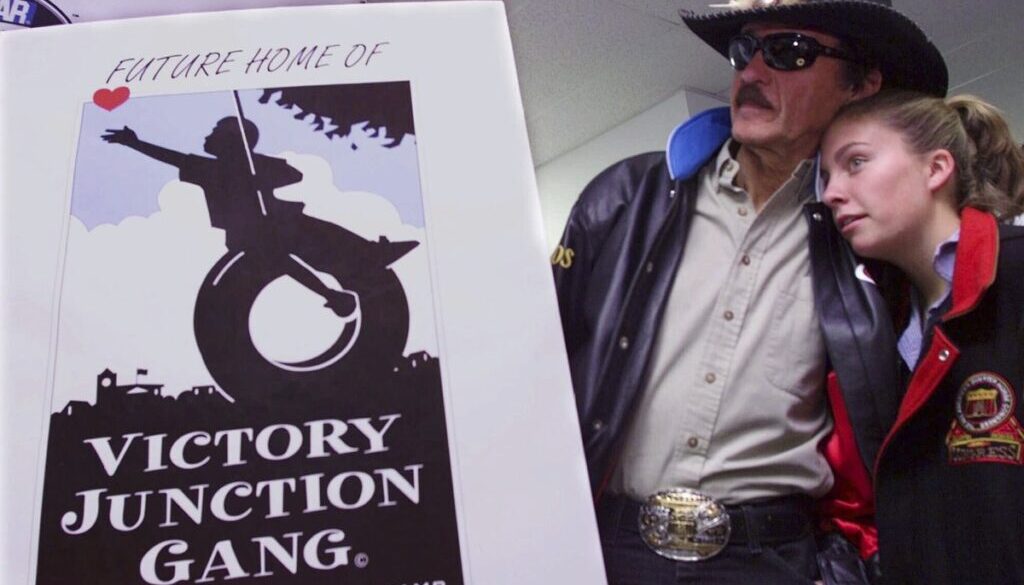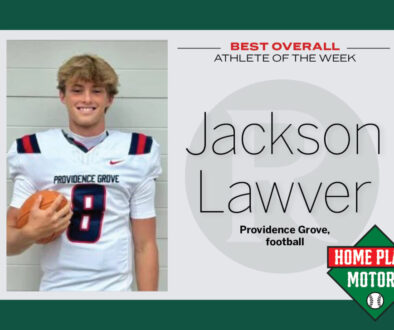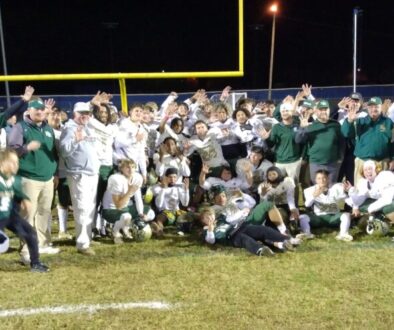Petty, ‘The King’ of NASCAR, says camp for seriously ill children is family’s true legacy
Richard Petty and his granddaughter Montgomery Lee Petty, then 14, take part in a 2000 news conference announcing the founding of Victory Junction Gang Camp. (The Associated Press)
Richard Petty, with a record 200 Cup Series wins, seven championships and a first-ballot inductee into the Hall of Fame, is considered NASCAR’s greatest driver.
He is spending the season celebrating 75 years of NASCAR participation by his famous family — basically since the inception of the stock car series in 1948 — and reflecting on the legacy that will be left behind.
As he approached his 87th birthday, celebrated Tuesday ahead of this weekend’s race at Chicago, Petty has realized that his family should be hailed for something far bigger than anything it did in NASCAR. He pointed to the Victory Junction Gang Camp, which was opened in 2004 for chronically ill children as a way to honor his late grandson.
Adam Petty was 19 when he was killed in a 2000 crash practicing for a race at New Hampshire. Not too many years before, he’d made a motorcycle visit to Paul Newman’s Camp Boggy Creek and became interested in creating a similar camp in North Carolina.
Petty said the family following through on Adam’s dream will be the family’s lasting legacy.
“This is for seriously ill kids who can’t go to camp, so it’s a very special deal,” Petty said. “The kids come from all over the country and they don’t charge them anything. We make sure they get there and get them home. So when I look at the Pettys’ 75 years of racing, I think it brought the camp into play and I think the bigger legacy, what it will hopefully be, is more about the Victory Junction Camp than anything about racing.
“Racing put us in a position to come out and do something and it was always one of Adam’s dreams,” he added. “When we lost Adam, the family got together and said we’d go pursue that deal.”
Adam Petty was the oldest son of Kyle Petty, Richard’s only son. Petty family patriarch Lee started the racing team, and Richard’s engine-building brother, Maurice, are all considered the foundation of the team’s success. The trio are all members of NASCAR’s Hall of Fame.
Richard Petty is “The King” and he remains a larger-than-life figure in retirement, his cowboy hat and sunglasses a beloved and familiar sight at the track, where even at 87 he shows up to every NASCAR weekend and is currently an ambassador for Legacy Motor Club. That team, co-owned by fellow seven-time Cup champion Jimmie Johnson, is the backbone of Petty Enterprises.
Kyle Petty never equaled his father in on-track success but Adam was considered to be a future NASCAR star at the time of his fatal crash. Although winless at the national series level when he was killed, he’d made one Cup start and had won two races in the ARCA Series feeder system when he was 17.
Had he not died so young, Adam Petty likely would have moved to the Cup level to drive for Petty Enterprises and kept that team afloat and competitive for several decades.
Instead, his death helped the family create its proudest achievement.
Located across 84 acres in the Petty hometown of Randleman, the camp notes that “Adam’s passion for racing was equaled only by his compassion for others, especially children” and that he often visited children in pediatric hospitals.
The camp is largely funded through donations and money-raising events that include both a fan walk and the annual “Kyle Petty Charity Ride Across America.” The motorcycle trip began in 1995, long before the camp, but proceeds now go to Victory Junction.
Richard Petty said it thrills him that Victory Junction began long before foundations and charities started by drivers became the norm.
“We had a grandson that we loved, but look at the thousands of kids — I think we’ve seen 30,000 kids and this is our 20th year, and Kyle always says when he sees one of them smile, he sees Adam smile,” Richard Petty said.
Petty is adamant that the family never would have been able to launch Victory Junction without the success of Petty Enterprises, which was NASCAR’s winningest team until 2021. Once they decided to start the camp, drivers, industry veterans and fans were all eager to contribute in any way they could.
“Everybody wants to leave a legacy of some kind,” Petty said. “I think that, racing over a period of time, will go away or be different. I think the notoriety of the camp is going to be around a lot longer than anything I’ve accomplished in racing.”
 Twitter
Twitter Facebook
Facebook Instagram
Instagram


